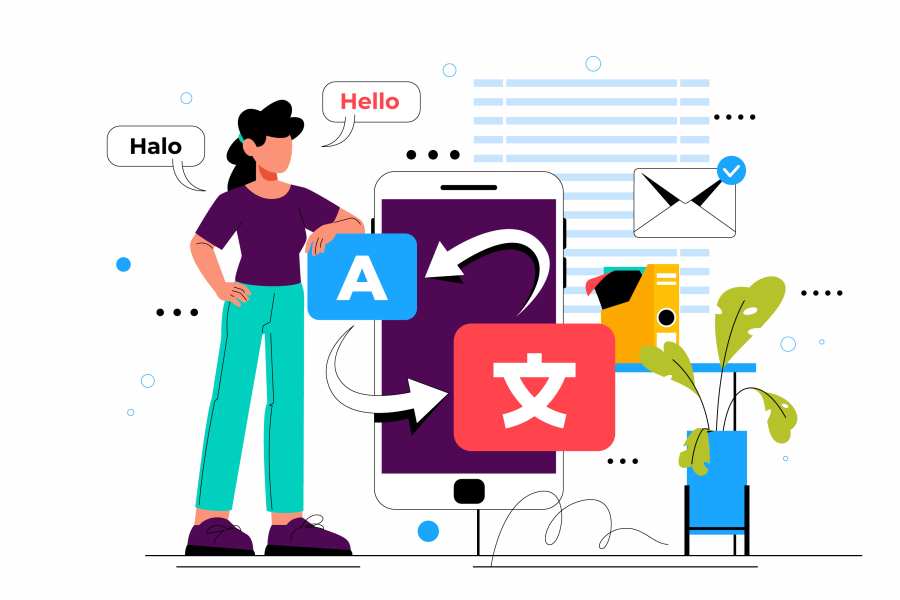Science-Based App Development: Freelance Opportunities
The intersection of science and technology has opened doors to innovative solutions that are transforming industries. From healthcare to biotechnology, climate science to education, science-based apps are becoming essential tools for research, problem-solving, and public engagement. With the rise of digital adoption, startups, universities, and even governments are seeking skilled freelancers to design, develop, and manage apps that translate scientific knowledge into real-world impact.
For freelancers, particularly those exploring opportunities through platforms like FreelancerBridge, science-based app development represents a growing niche filled with potential. This field not only demands technical skills but also requires a solid understanding of scientific concepts and how they can be translated into user-friendly, data-driven applications.
Long Description
1. The Rise of Science-Based Apps
Science-based apps have gained popularity due to:
Data Accessibility – Apps that allow scientists and students to visualize and interact with complex data.
Public Engagement – Citizen science apps help the public contribute to research projects.
Healthcare Innovation – Apps for patient monitoring, diagnostics, and personalized medicine.
Environmental Monitoring – Tools that track pollution, biodiversity, and climate change.
STEM Education – Interactive platforms to teach scientific principles in engaging ways.
This growing demand has created numerous freelance opportunities for developers with a scientific edge.
2. Why Freelancers Are in Demand
Startups and research organizations often prefer freelancers for app development because:
Cost Efficiency – Hiring freelancers reduces overhead.
Specialized Expertise – Freelancers can combine coding knowledge with niche scientific understanding.
Flexibility – Freelancers adapt to short-term or long-term projects as needed.
Innovation – Independent professionals bring creative and cross-disciplinary approaches.
3. Key Areas of Science-Based App Development
Freelancers can find opportunities in several sectors:
Healthcare & Biotech
Patient health tracking apps.
AI-driven diagnostics.
Clinical trial management tools.
Environmental Science
Apps for monitoring air quality, water pollution, or wildlife.
Climate change awareness platforms.
Education & Learning
Interactive simulations for physics, biology, or chemistry.
Augmented Reality (AR) apps for immersive learning.
Data Science & Research
Apps for big data visualization and analysis.
Tools that enable collaboration across labs and institutions.
Citizen Science
Platforms where individuals can contribute to ongoing research projects.
4. Skills Needed for Freelancers
To succeed in this niche, freelancers must combine technical and scientific expertise:
Programming Skills – Python, Java, Swift, Kotlin, or React Native.
Data Science Knowledge – Ability to handle large datasets and integrate analytics.
Scientific Understanding – Familiarity with specific scientific domains.
UI/UX Design – Creating intuitive and engaging interfaces.
API Integration – Linking apps with scientific databases or IoT devices.
Regulatory Awareness – Especially for healthcare-related apps (HIPAA, GDPR, etc.).
5. Platforms to Find Freelance Opportunities
Freelancers can leverage multiple platforms to secure science-based app projects:
FreelancerBridge – Tailored for science and business collaborations.
Upwork & Fiverr – Popular marketplaces for app development gigs.
Toptal – For high-level projects requiring advanced expertise.
Academic Collaborations – Universities often hire freelancers for project-specific apps.
Direct Networking – Connecting with research labs, NGOs, and startups.
6. Monetization Models for Freelancers
Freelancers can generate income through:
Project-Based Contracts – Fixed fees for app development projects.
Hourly Rates – Especially for ongoing app maintenance.
Equity Partnerships – Collaborating with startups for long-term growth.
Consultancy Services – Advising companies on integrating science with technology.
Product Development – Creating your own science-based app and monetizing it.
7. Challenges in Science-Based App Development
Freelancers may encounter:
Complexity of Scientific Data – Requires translating technical data into user-friendly visuals.
High Accuracy Demands – Mistakes in scientific apps can impact research or patient health.
Regulatory Barriers – Compliance with healthcare and data protection laws.
Constant Updates – Science evolves rapidly; apps must keep pace with new findings.
Overcoming these challenges requires continuous learning and collaboration with experts.
8. Future of Freelancing in Science-Based Apps
The demand for science-based apps will only grow as:
AI and Machine Learning enhance research capabilities.
IoT and Wearables revolutionize healthcare and environmental monitoring.
Blockchain ensures data integrity in scientific research.
Global Collaboration makes science accessible to a wider audience.
Freelancers who establish expertise now will position themselves as leaders in this niche.
Conclusion
Science-based app development is not just a trend — it is becoming an essential bridge between complex research and real-world solutions. For freelancers, this space offers endless opportunities to innovate, collaborate, and earn, while contributing to advancements in healthcare, sustainability, and education.
Platforms like FreelancerBridge empower freelancers to connect with clients who need specialized scientific and technical expertise, making it easier than ever to build a sustainable career in this emerging field.


 by Emily
by Emily




